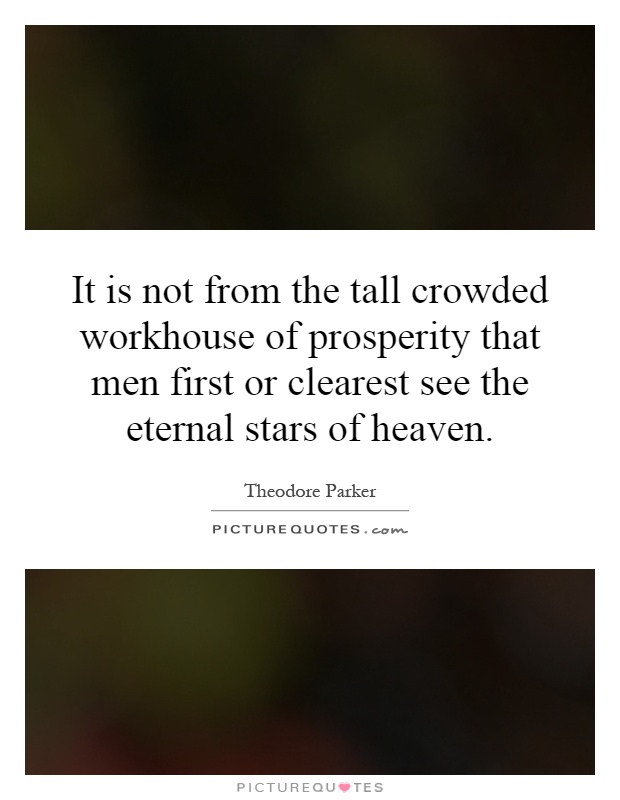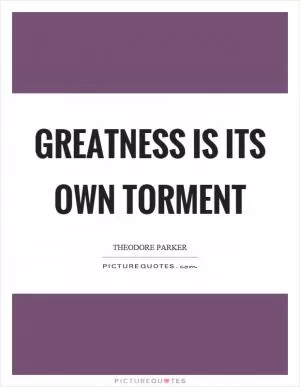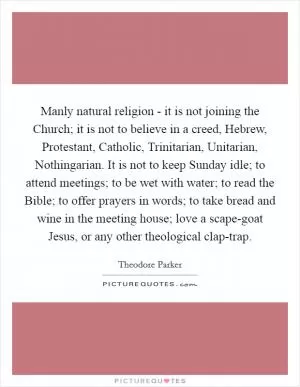It is not from the tall crowded workhouse of prosperity that men first or clearest see the eternal stars of heaven

It is not from the tall crowded workhouse of prosperity that men first or clearest see the eternal stars of heaven
Theodore Parker, a prominent American Transcendentalist and Unitarian minister, was a firm believer in the idea that true spiritual enlightenment and understanding could not be found in the materialistic pursuits of wealth and success. His famous quote, "It is not from the tall crowded workhouse of prosperity that men first or clearest see the eternal stars of heaven," encapsulates his belief that true insight and connection with the divine can only be achieved through simplicity, humility, and a deep appreciation for the natural world.Parker's philosophy was deeply rooted in the Transcendentalist belief that the material world is merely a reflection of a higher spiritual reality. He believed that by immersing oneself in nature and cultivating a sense of awe and wonder at the beauty of the natural world, one could gain a deeper understanding of the divine and their place within it. This idea is reflected in his quote, as he suggests that it is not in the hustle and bustle of the wealthy and successful that one can truly appreciate the eternal beauty and wisdom of the universe, but rather in moments of quiet contemplation and reflection.
Parker's own life exemplified his belief in the importance of simplicity and humility in spiritual growth. Despite being a highly respected and influential figure in the religious and intellectual circles of his time, he lived a modest and unassuming life, eschewing material wealth and luxury in favor of a deeper connection with nature and the divine. He spent much of his time in the natural world, finding solace and inspiration in the beauty of the forests, mountains, and rivers that surrounded him.












 Friendship Quotes
Friendship Quotes Love Quotes
Love Quotes Life Quotes
Life Quotes Funny Quotes
Funny Quotes Motivational Quotes
Motivational Quotes Inspirational Quotes
Inspirational Quotes